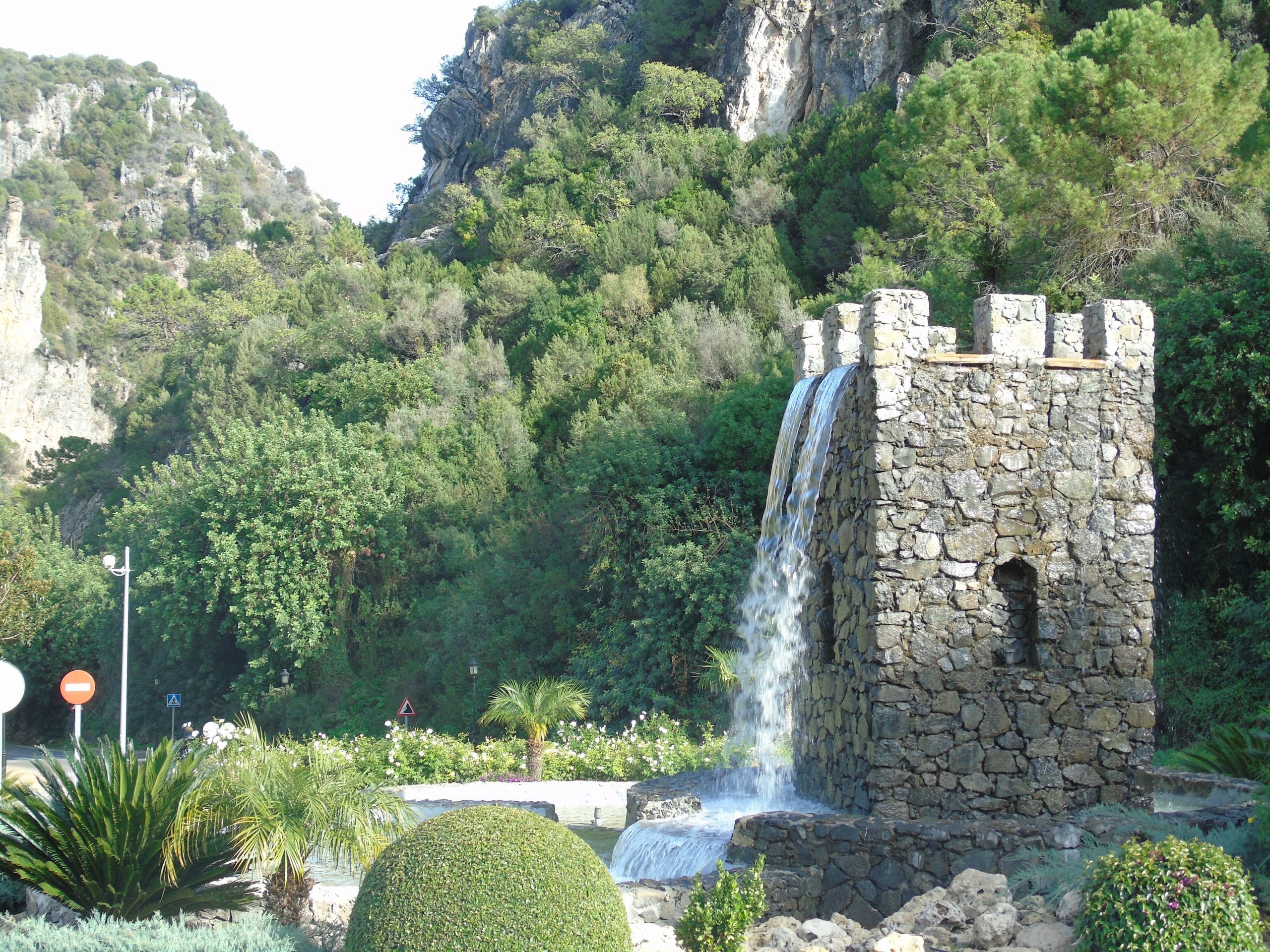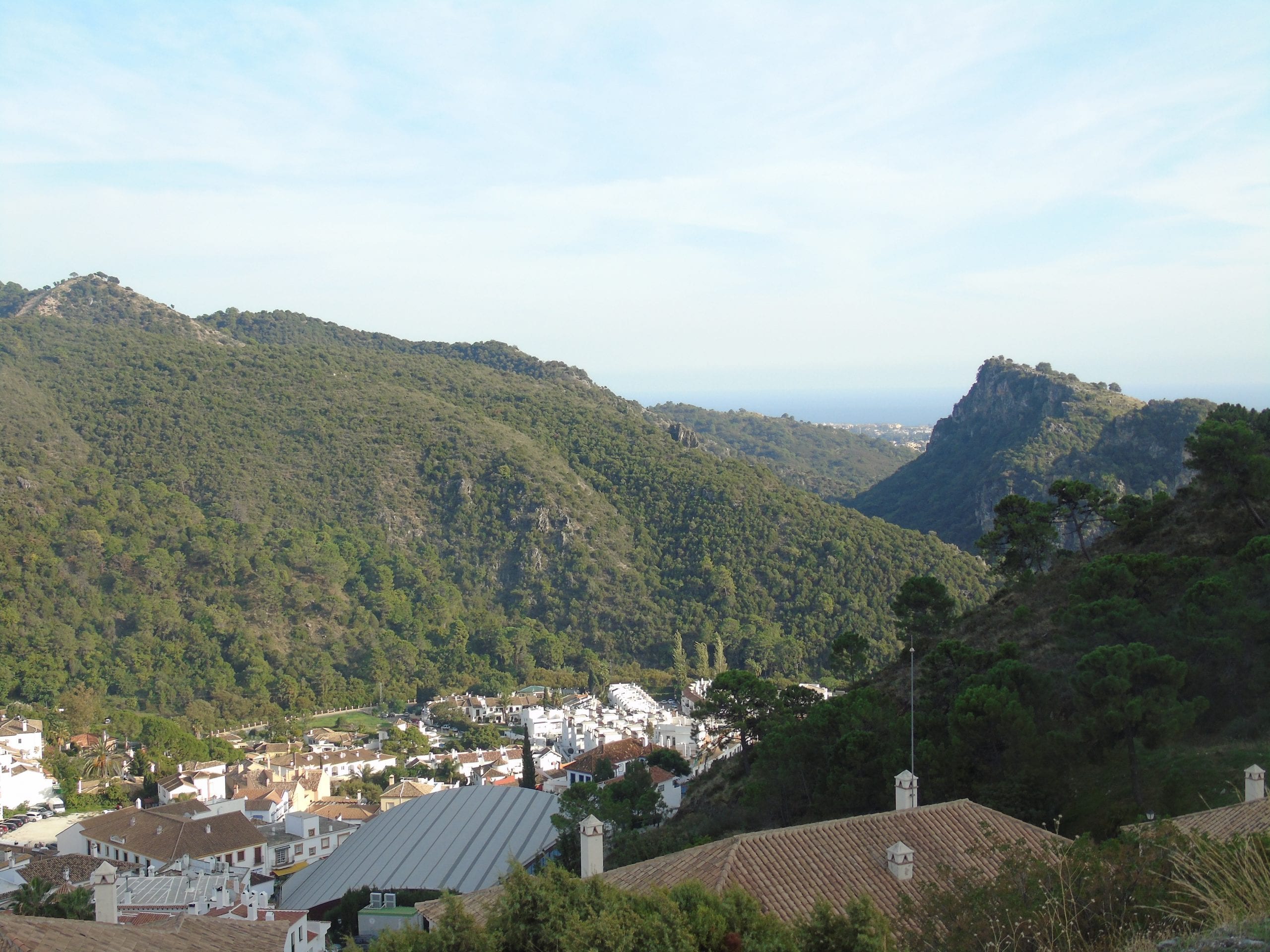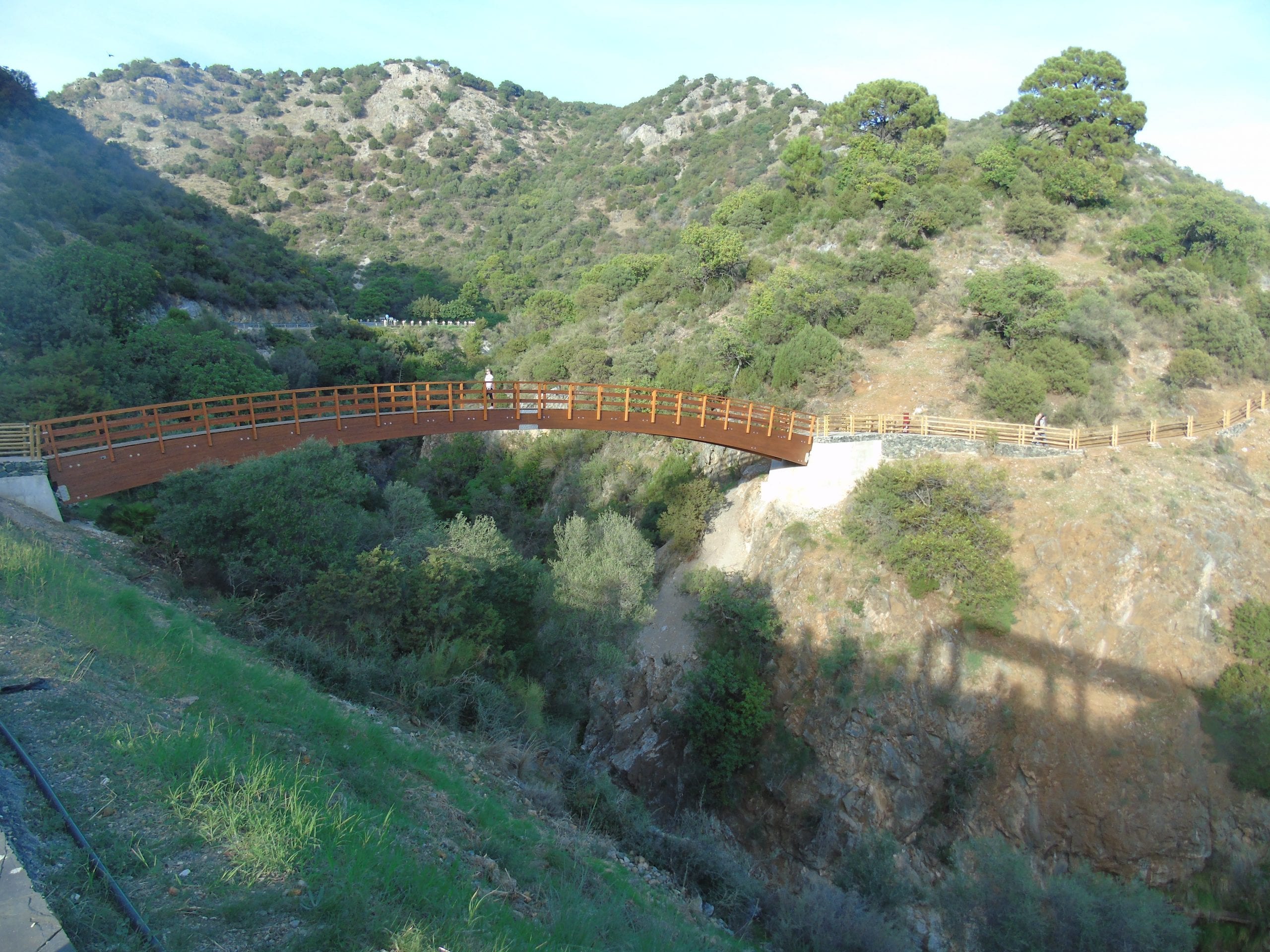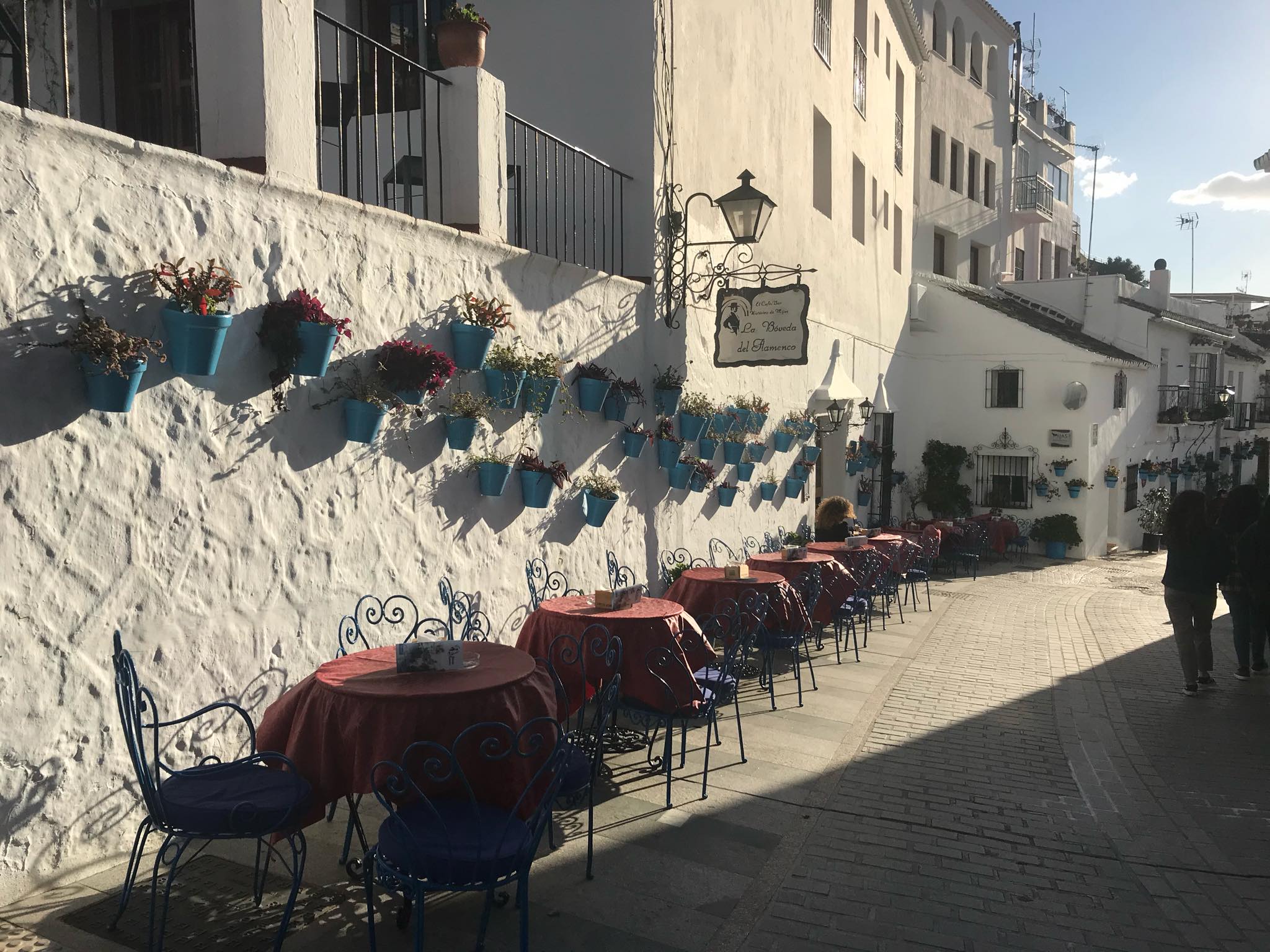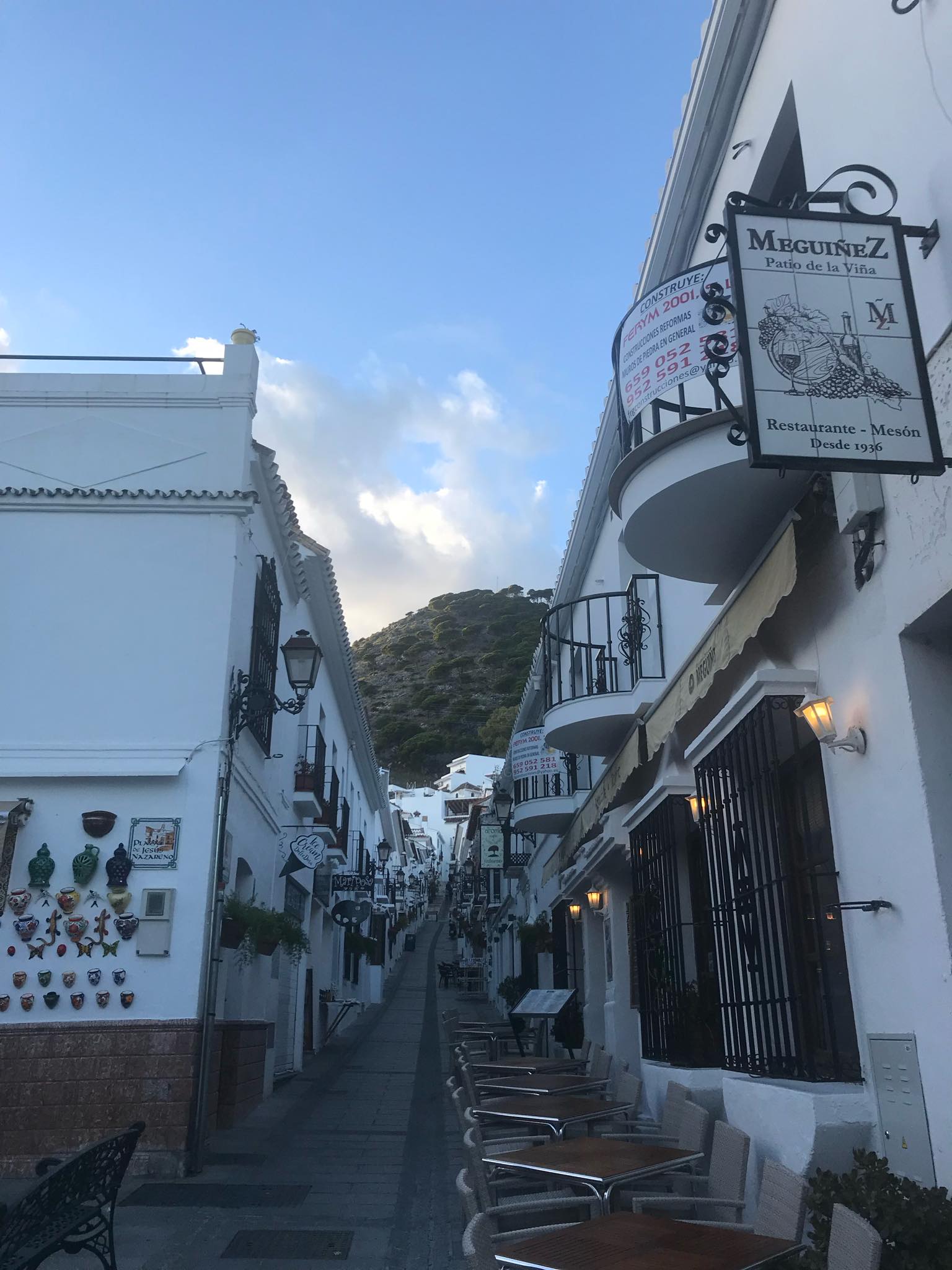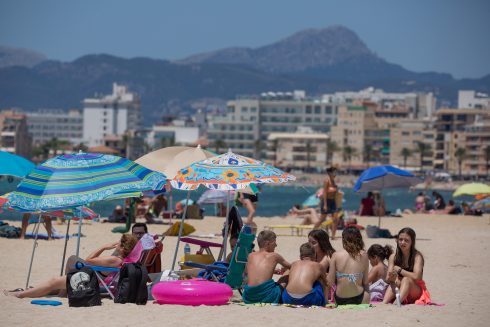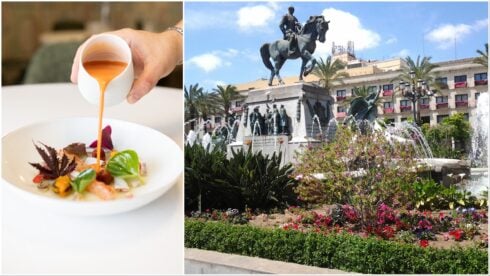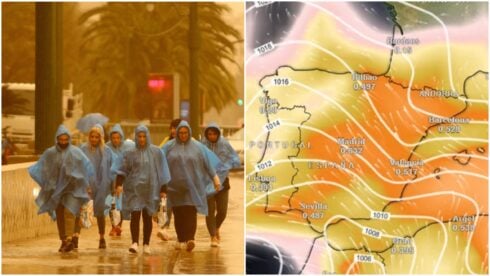WHILE the likes of Marbella and Puerto Banus tend to grab the headlines, the Costa del Sol is home to so much more.
Running from east of Malaga to near the Gibraltar border, Spain’s sunniest coast has a varied and unique collection of towns and resorts, largely thanks to its rich historical past.
But if you’re looking for somewhere to visit other than the typical – albeit fantastic – Marbella or Estepona, here are five somewhat lesser known towns to explore in 2021.
Benahavis
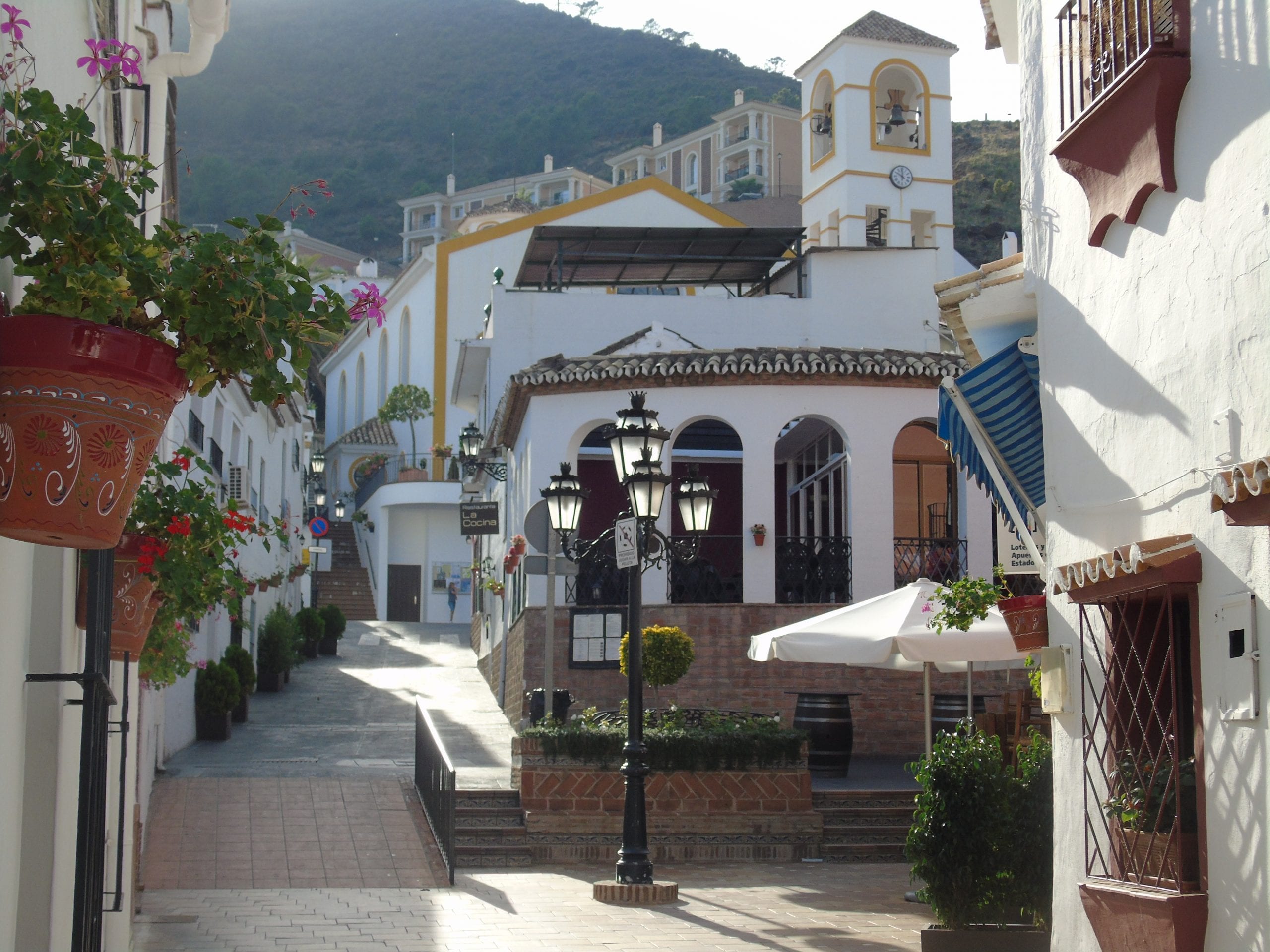
Sitting just west of Marbella, Benahavis is one of the wealthiest towns, per capita, in Spain…and one of Andalucia’s richest town halls.
But this doesn’t define this picturesque village, which boasts stunning scenery, attractive architecture and great golf courses – plus its infinite opportunities for fine dining.
Benahavis is often referred to as ‘the dining room of the Costa del Sol’, with its enticing restaurants tumbling over each other through the charming squares and winding streets of this picturesque mountain village.
Classy, yet authentic, the village frays at the edges into wild scenery that’s perfect for walking up an appetite.
It is the actual arrival into the village that really takes your breath away.
One minute you are on classic built up stretch of the Costa del Sol and the next driving through a practically virgin valley with breathtaking views of mountains in the distance.
The Las Angosturas gorge at the village entrance offers an incredible 60 rock climbing routes while the Rio Guadalmina, cascading down to the coast, is another invigorating experience.
Mountain bikes, mopeds and golf buggies abound, as do expats, but the invasion of the modern world has not spoiled the charm and authenticity.
West of the village, the road rises to the crumbling Moorish Montemayor Castle atop Benahavis’ tallest mountain, a strategic vantage point for photographers today as it was for sentries in times gone by.
It is said that underground passageways connected the castle to the coast, which the Arabs used to move soldiers, food and weapons.
Founded at the end of the 11th century, Benahavis also has Arabic origins and takes its name from Havis, a Moorish prince who ruled from the castle (in Arabic, ‘Bin al Havis’ means ‘son of Havis’), making it one of the few Spanish names where the ‘h’ is pronounced.
History notes that, after Montemayor castle was captured by Catholic Monarchs in the 15th century, a 350-year war broke out between Benahavis and Marbella, until the village achieved independent community status.
It may have been a bitter divorce but, today, the glitzy coastal resort and the charming mountain retreat are the ideal two-centre holiday partnership.
Manilva
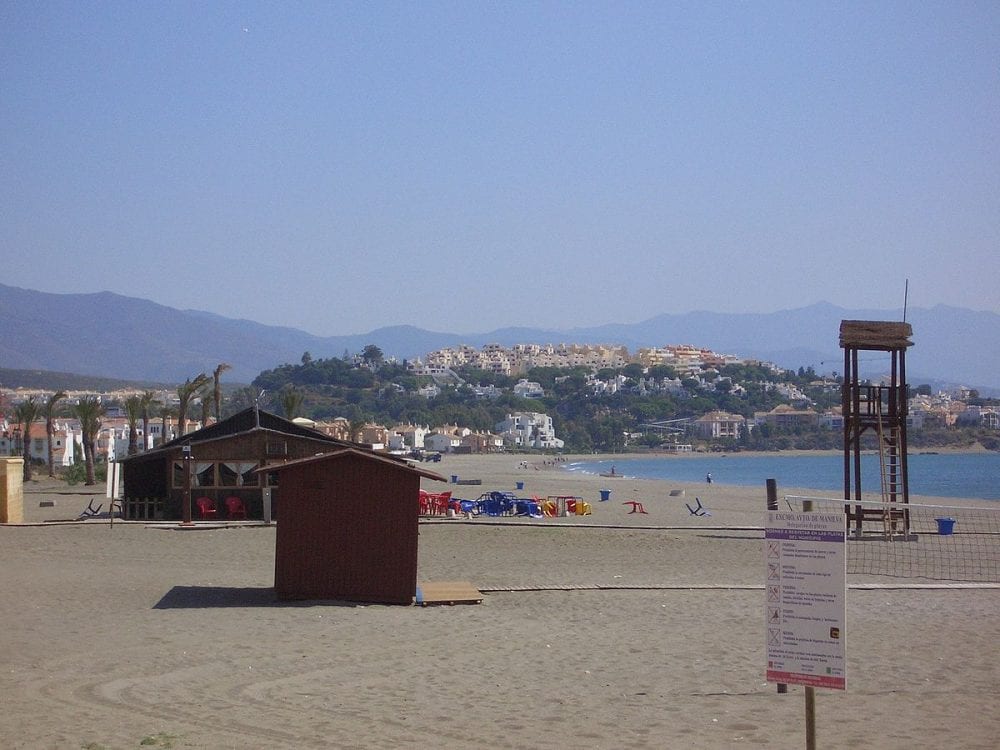
Just over 3,000 British expats live in this 12,000-strong municipality, either in the coral-white marina of ‘La Duquesa’, upon the mile-long beachfront of San Luis de Sabinillas or up on the hilltop lookout of Manilva itself.
Though the Brits and the 180-odd other nationalities come from all walks of life, they all enjoy a temperate life beneath the jaw-dropping mountains, fed by the fruits of the sea.
San Luis de Sabinillas offers another take on coastal living with its collection of ‘chiringuitos’, where the salt sea air is flavoured with the aroma of ‘pescaditos fritos’ – fried fish, Spanish style.
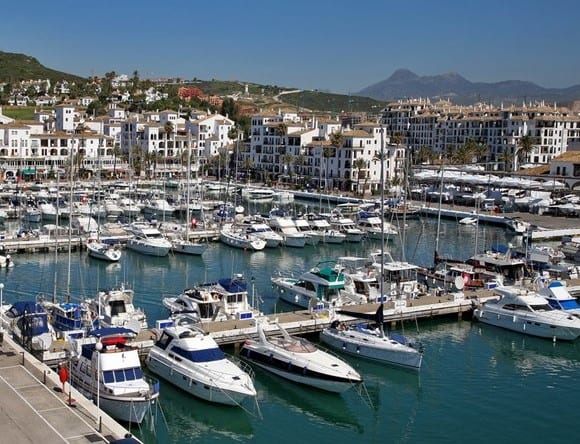
These informal beach restaurants often open around Easter before hibernating from December to March.
On Sundays, however, the famous flea market Rastro de Sabinillas proves that the Spanish do not hibernate and there is still much to see and do.
Held weekly at the fairground off the Camino de los Banos de la Hedionda, the Rastro is a bargain hunter’s paradise stretched across 300 stalls piled with jewel-coloured fruit and veg, antiques, local handicrafts and second-hand designer wear.
Running further west the other side of Duquesa, the coastline gets wilder and less and less developed.

Here, you will find an extensive nature zone and golden beaches edged with wild grasses and flowers.
The Punta Chullera area is a rock-pool potterer’s paradise and offers the occasional curious sight, such as fresh squid hanging on washing lines to dry.
If resting on your well-earned retirement laurels is not for you, then you can still head for the rugged hills of Manilva, which unfold like a fan along several walking and off-road trails.
These capillaries are ever more deeply etched into the landscape by the coast’s growing number of biking and walking enthusiasts who enjoy the trips into nature.
Adventurers should also make a pilgrimage to Manilva itself, which traces its roots dominance back to 16th century vineyards famed throughout the world for their sweet wines, known locally as ‘vino mosto’.
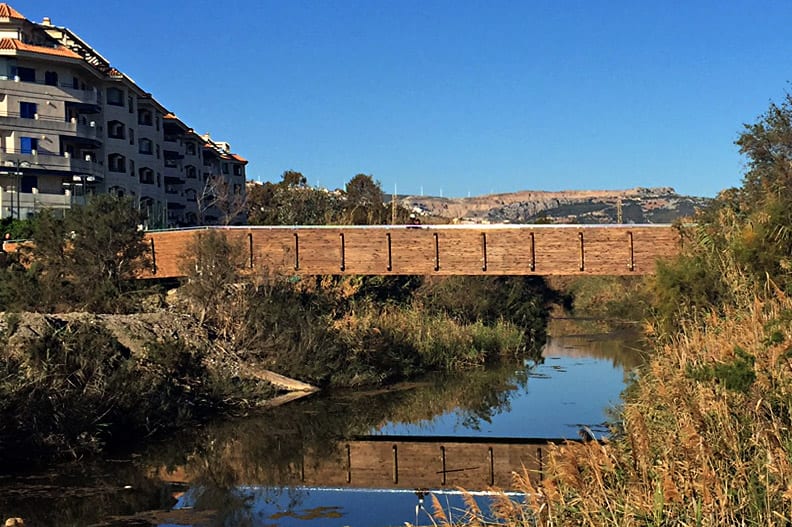
The story of its thriving wine industry is beautifully told at the Nilva Wine Museum where you can also take a vineyard tour.
Casares
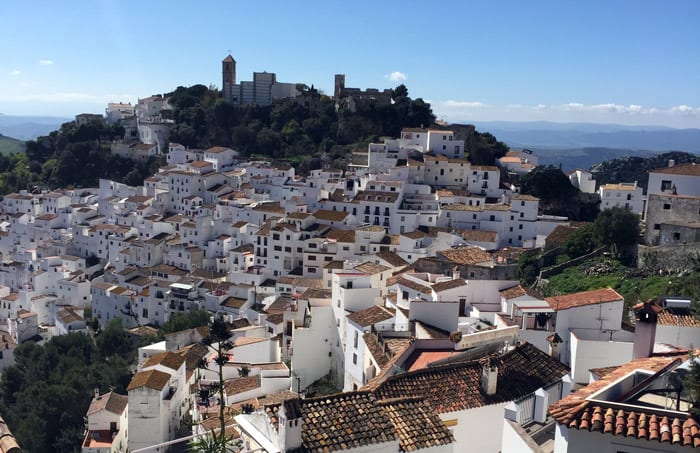
The picture-perfect hilltop town of Casares has come a long way since neighbouring Gaucin coined the ditty: ‘In Casares buy bread and don’t hang around’ (‘En Casares compra pan y no te pares’).
And given that Brad Pitt, Axl Rose and Peter Andre all chose to ignore that advice, modern Casarenos have the last laugh. And then there is Julius Caesar, after whom the town got its name, when he dropped in for a dip in its healing waters a few centuries back.
The Roman emperor is said to have taken to the healing, sulfurous waters of La Hedionda, currently under renovation (and sometimes falsely attributed to Manilva), below the town.
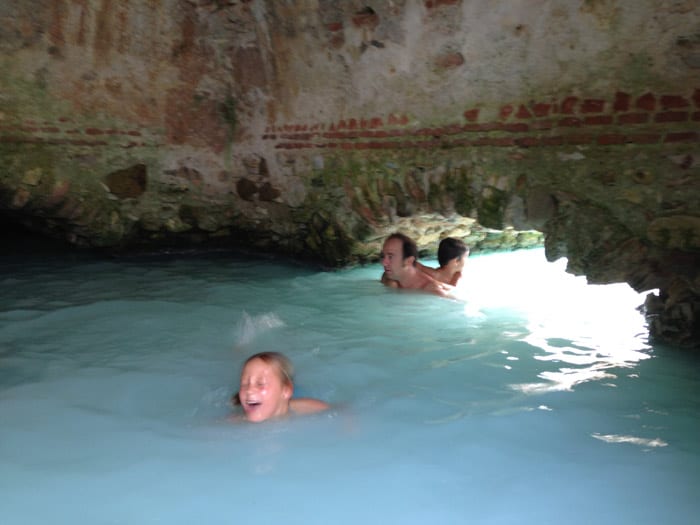
Alleged to have been suffering from something of an itch, after a couple of days he is said to have cleared it up and given the tiny settlement his royal Roman seal of approval.
It led to the town inheriting the name Caesaria, from which Casares eventually emerged, and for the spot to become sometimes known as the Roman Oasis.
It is set in a beautifully lush valley, through which a footpath takes the more adventurous on a lovely hour or two hike up to the white village above.
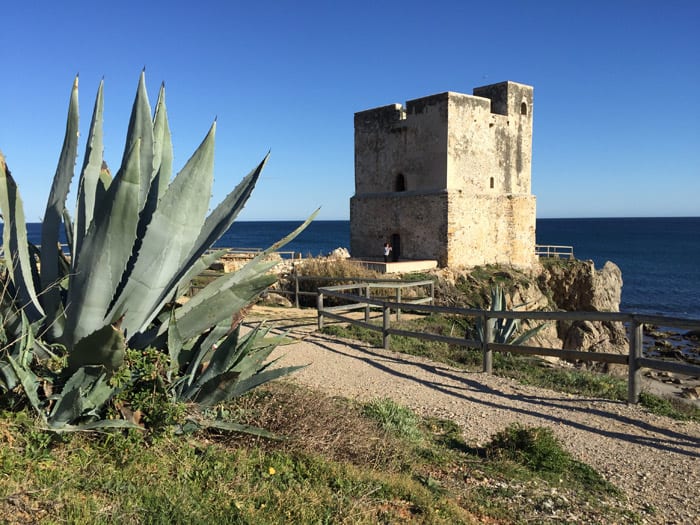
One of the Costa del Sol’s most stunning walks it criss-crosses rivers, takes in ruined mills and offers up some of the best scenery of karst rocks and distant mountains.
Plan it well and you can take in one of the town’s fantastic restaurants for lunch, or take in one of the many other well signposted walks (there are 200kms of them in total) around the village.
Wherever you head, you will inevitably see vultures, eagles, kestrels and other majestic birds of prey soaring over the vertiginous village.
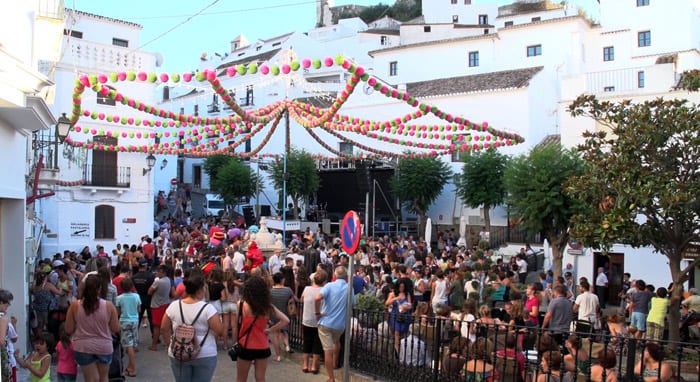
The village itself is well worth a poke around, with its charming white streets and handful of shops and restaurants.
It is one of the most photographed of Andalucia’s celebrated pueblo blancos and is topped by a ruined castle and church.
Such is its fame that Brad Pitt and Angelina Jolie once took a spin around the village, allegedly ending up buying bought two pieces of art at the Studio 54 gallery.
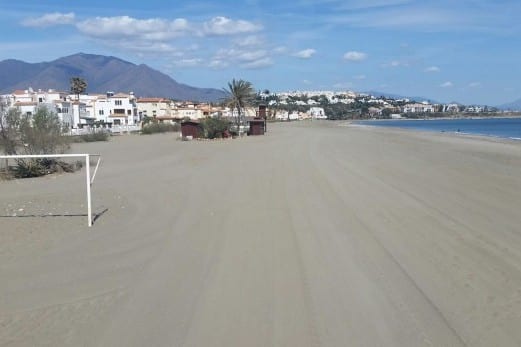
TV presenter-turned-politician Robert Kilroy Silk liked the place so much he bought an incredible two swimming pool mansion on the outskirts, which he sold a few years back.
Meanwhile it is home to three golf courses – the Dona Julia, Casares Costa and world-famous Finca Cortesin.
The latter is one of Andalucia’s leading courses with a stunning five-star hotel to match.
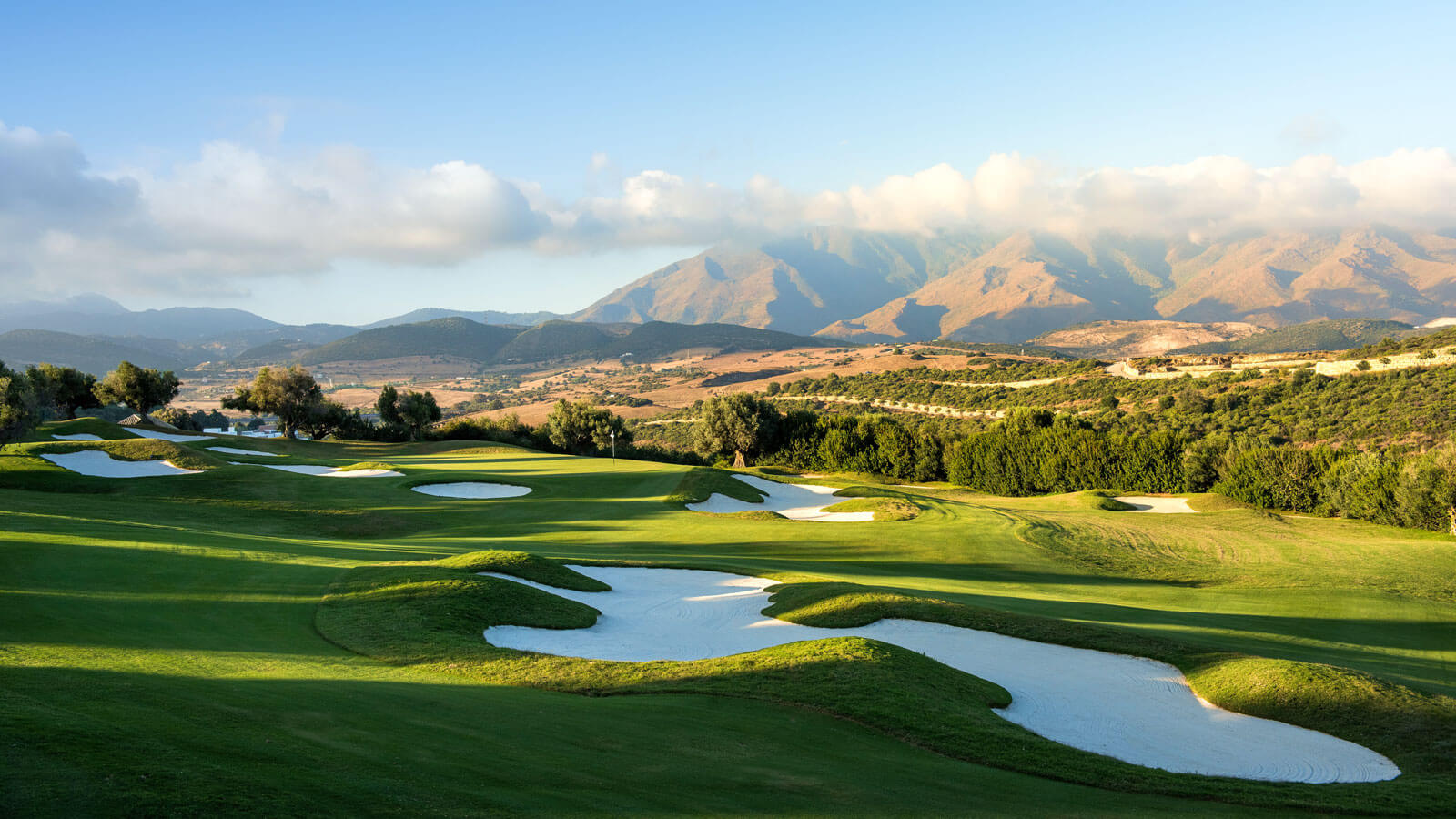
While Real Madrid forward Gareth Bale and Sheffield United’s Phil Jagielka have been spotted playing the course, celebrities including Axl Rose, from Guns and Roses, Patrick Stewart and Angelina Jolie and Brad Pitt are said to have stayed there.
But Casares has also become synonymous for something else over the last couple of decades… dining!
It’s famous road up to the coast counts no less than half a dozen excellent places to eat, while the village itself also counts a couple of top eateries.
Head out of town on the Gaucin road to find emblematic Queseria Sierra Crestellina cheese factory, where you can buy day-old fresh cheese, two-month-old semi-cured and four-month-old cured cheese.

Running for four generations, there are farm tours for the kids and tastings.
Back down on the coast, the stunning beaches offer kayaks, a massage service and a host of fantastic restaurants.
It is down here on June 23, that you will find one of Casares’ best nights out.
Celebrating the longest day of the year San Juan is hard to beat with its fireworks, live music and massive beach bonfire.
Mijas
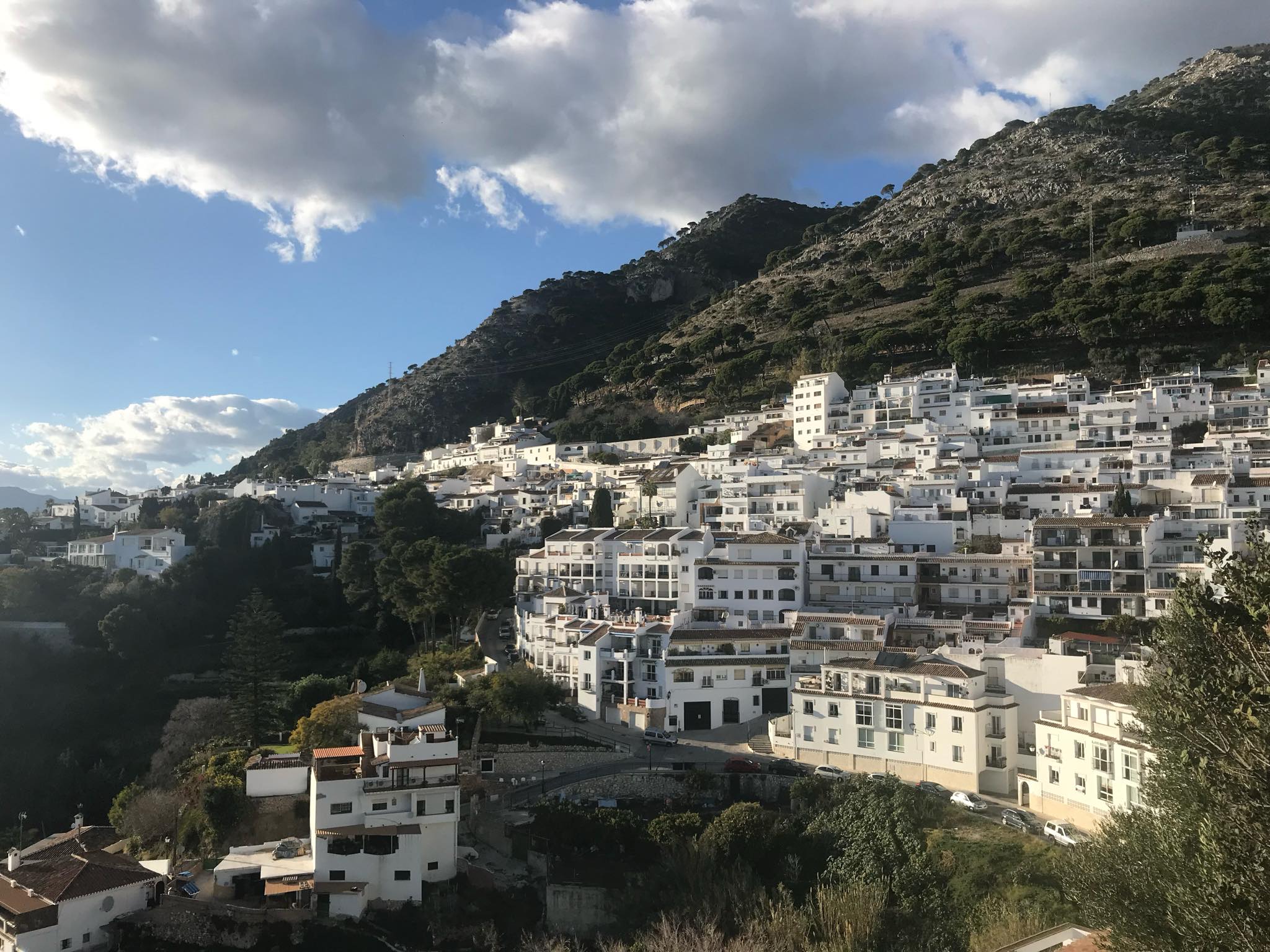
IF you’re looking for a typical Andalucian town to charm your socks off then look no further than white-washed Mijas.
The classic hilltop town, just a stone’s throw from the Costa del Sol, is quintessentially Spanish and packed full of surprises.
Discovered by the globe’s more bohemian artists and writers in the 1950s and 60s, it was immortalised in Ronald Fraser’s 1973 book, The Pueblo, and continues to cast a spell on visitors today.
A recent €4.7 million renovation which saw the main square transformed beyond recognition has helped (and for that you can thank the EU, which coughed up 70% of the funding).
If you are visiting on a clear day, don’t forget to enjoy the jaw-dropping views of the coast from the cliff-edge viewing point on the outskirts of the pueblo.
Elsewhere, come rain or shine, the Ermita de la Virgen de la Pena is an endearingly unpretentious little chapel.
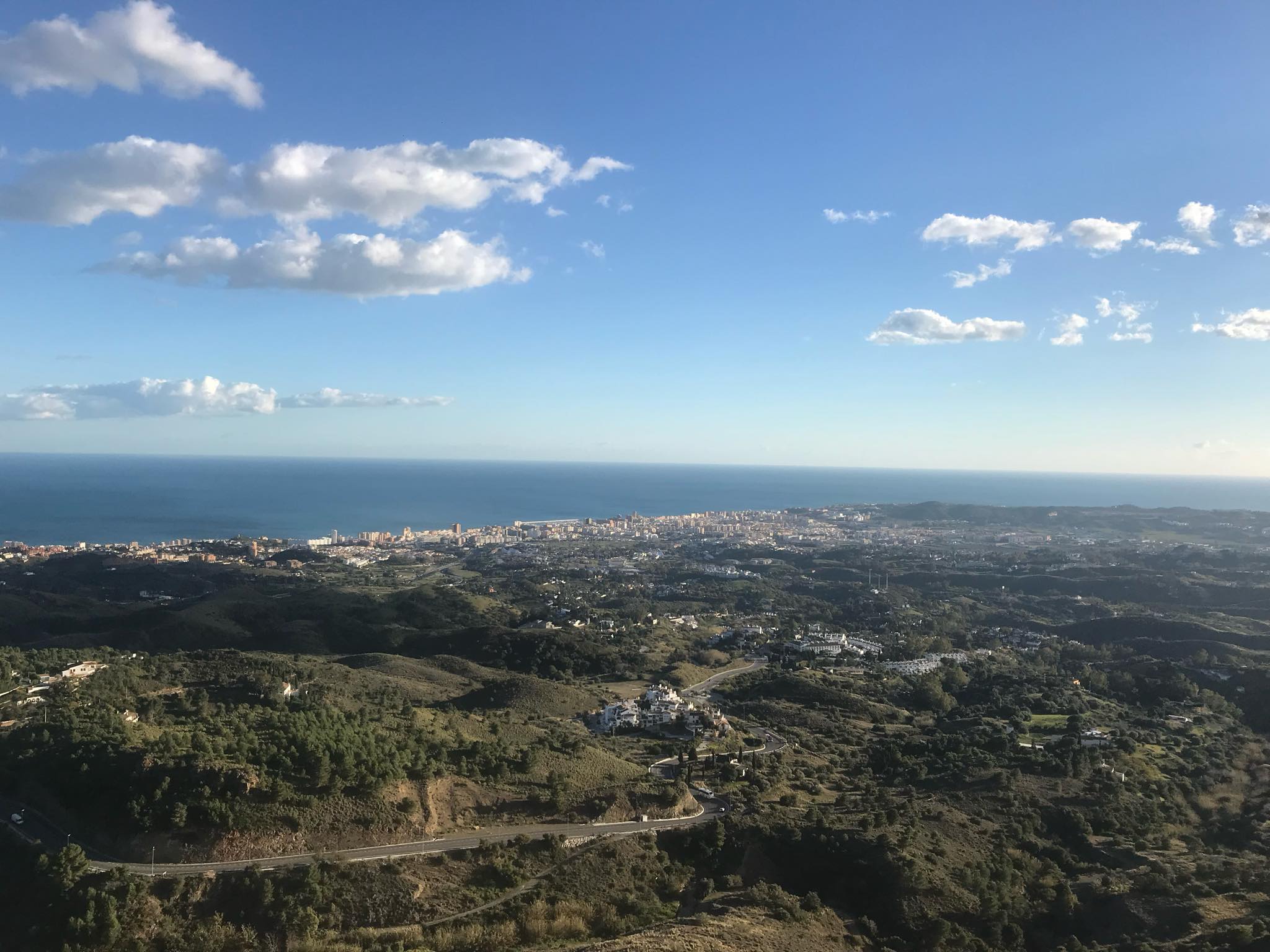
Forget the checked tiles of Notre Dame or the Sagrada Familia’s spiky, bejewelled interior. The hermitage was hollowed out by a single Carmelite monk in the 17th century.
Several museums and plazas are worth a look-in – in particular, the oval-shaped bullring built in 1900 and the main town museum, adorned with speciality esparto products and fabulous photos.
On top of this is the intriguing miniatures museum and the handsome town hall.
Rest your weary legs in the tranquil Plaza de los Siete Canos and poke a nose inside the eighteenth-century Ermita de Nuestra Senora de los Remedios before circuiting back to central Plaza de la Libertad via Calle Larga del Palmar and Calle San Sebastian.
The latter is ‘officially’ the pueblo’s prettiest street.
There are tapas haunts and restaurants to suit every taste and budget in Mijas, while the open air auditorium becomes a great concert venue, often hosting tribute acts in the summer.
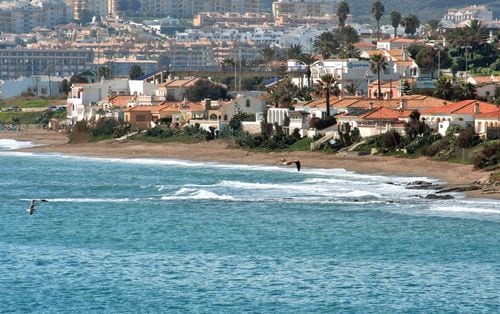
Back on the coast, the welcome in La Cala is equally warm.
Be it a Sauvignon Blanc in Olivia’s – run by TOWIE star Elliott Wright – or a pint of Guinness at Biddy Mulligan’s, there is somewhere for everyone to sit back and unwind.
Nerja

No trip to the eastern Costa del Sol is complete without seeing the charming Nerja.
It’s famous Balcon de Europa jutting out into the Med offers theatrical views while the popular town has managed to retain its Andalucian credentials and its rocky coves, sandy beaches and pueblo vibe are the envy of its more westerly Costa del Sol rivals.
Nerja was left untouched by the massive tourism development boom which hit the likes of Torremolinos and Marbella from the 1950s onwards.
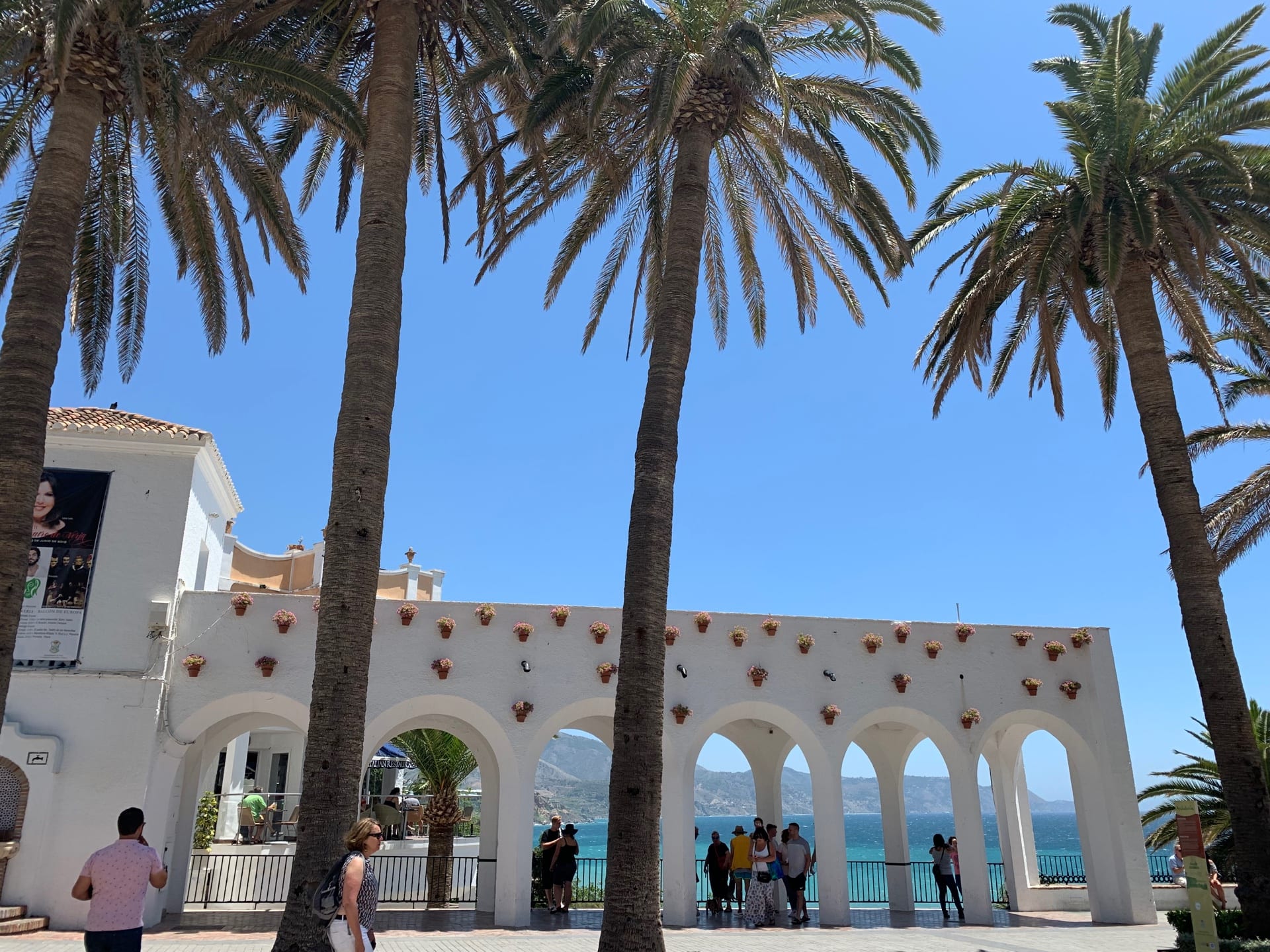
But that all changed when five boys on a bat-hunting trip stumbled upon the opening to a cave on a hillside above the tiny fishing village of Maro, a few miles east of Nerja.
Vast caverns were revealed, with spectacular rock formations showing evidence of Palaeolithic man.
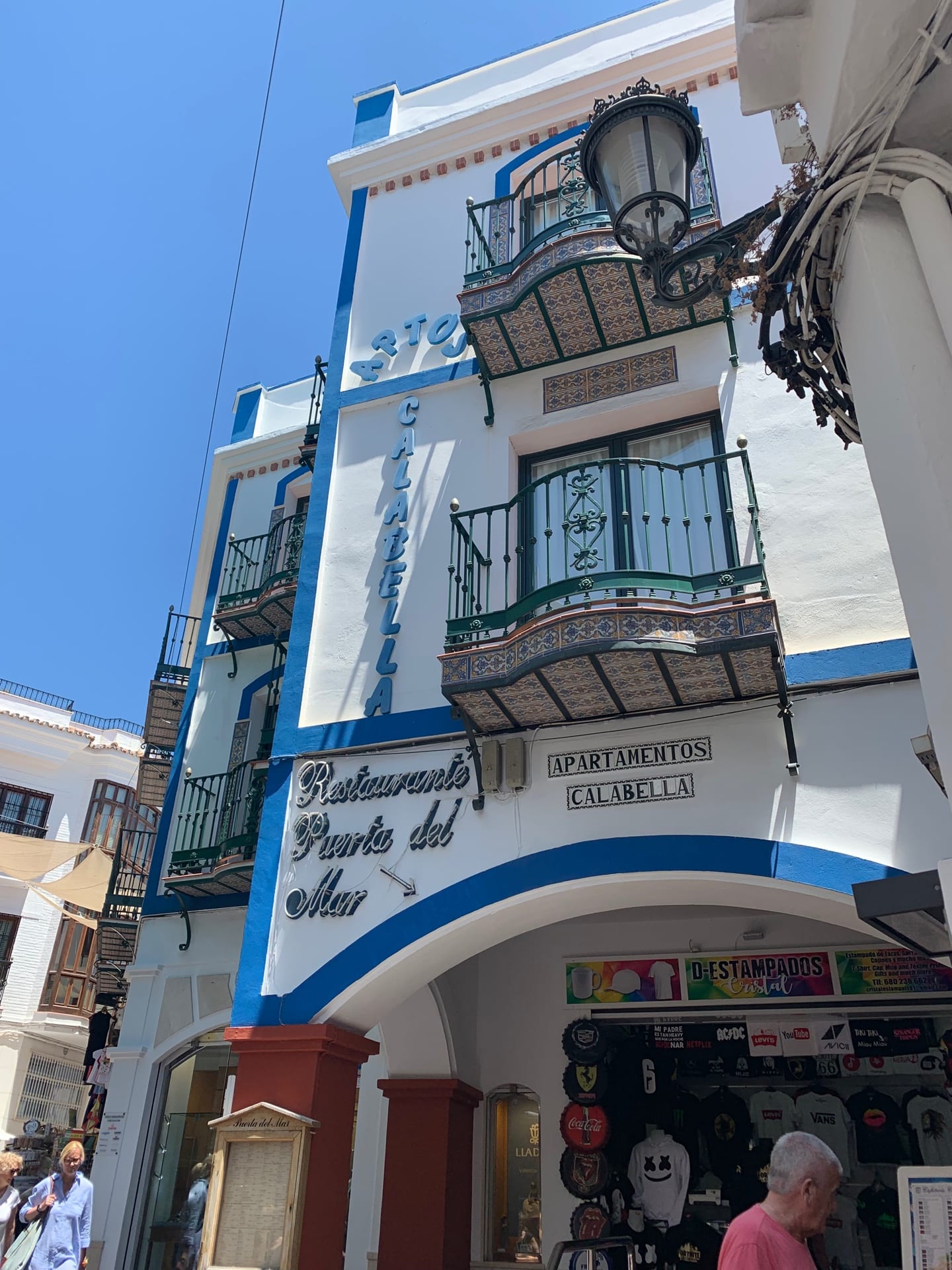
General Franco himself came to view the ‘Cueva de Nerja’ and coach-loads of visitors subsequently followed suit.
And when Nerja was chosen as a location for the 1980s TV series, Verano Azul, its future as a tourism destination was set. The series left an indelible mark. Now, wherever you go in Nerja, you’ll come across the name, which means blue summer.
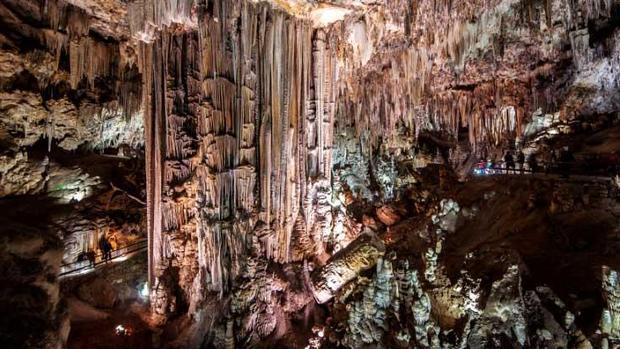
There is a Verano Azul travel agency, bus company, park, block of apartments … you may even find a bar serving a Verano Azul cocktail.
But if you want to get away from it all – the disco bars, the tourist shops and the bustle – head for one of the small coves just below the town, or nearby in Maro.
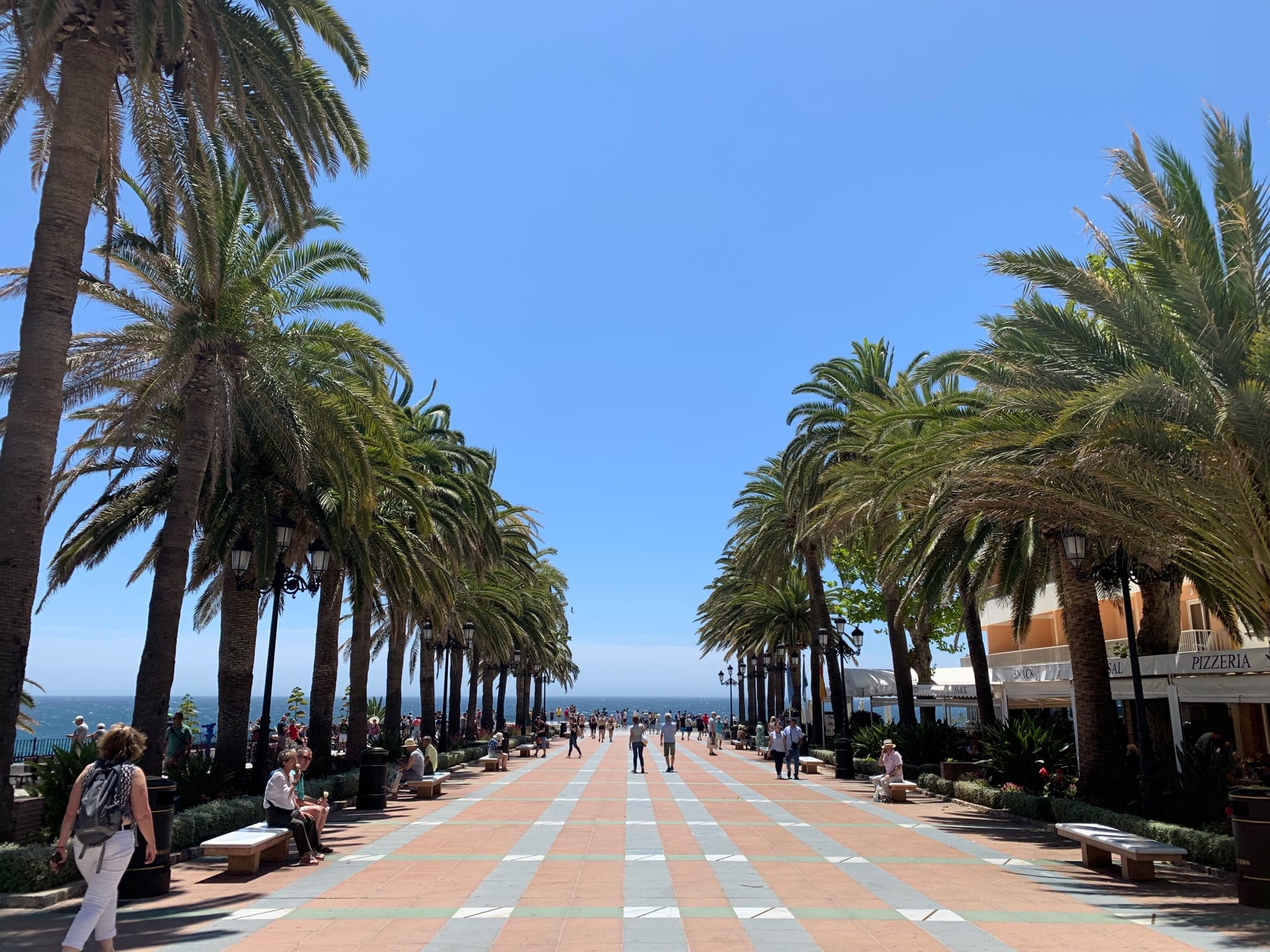
Nerja’s beaches are cut off from the town and roads, backed by sheer cliff-face.
You can sit on the sand for hours in solitude, lose track of time, without seeing a sign of civilisation, just coastline colliding with blue sea in both directions.
Click here to read more News from The Olive Press.


